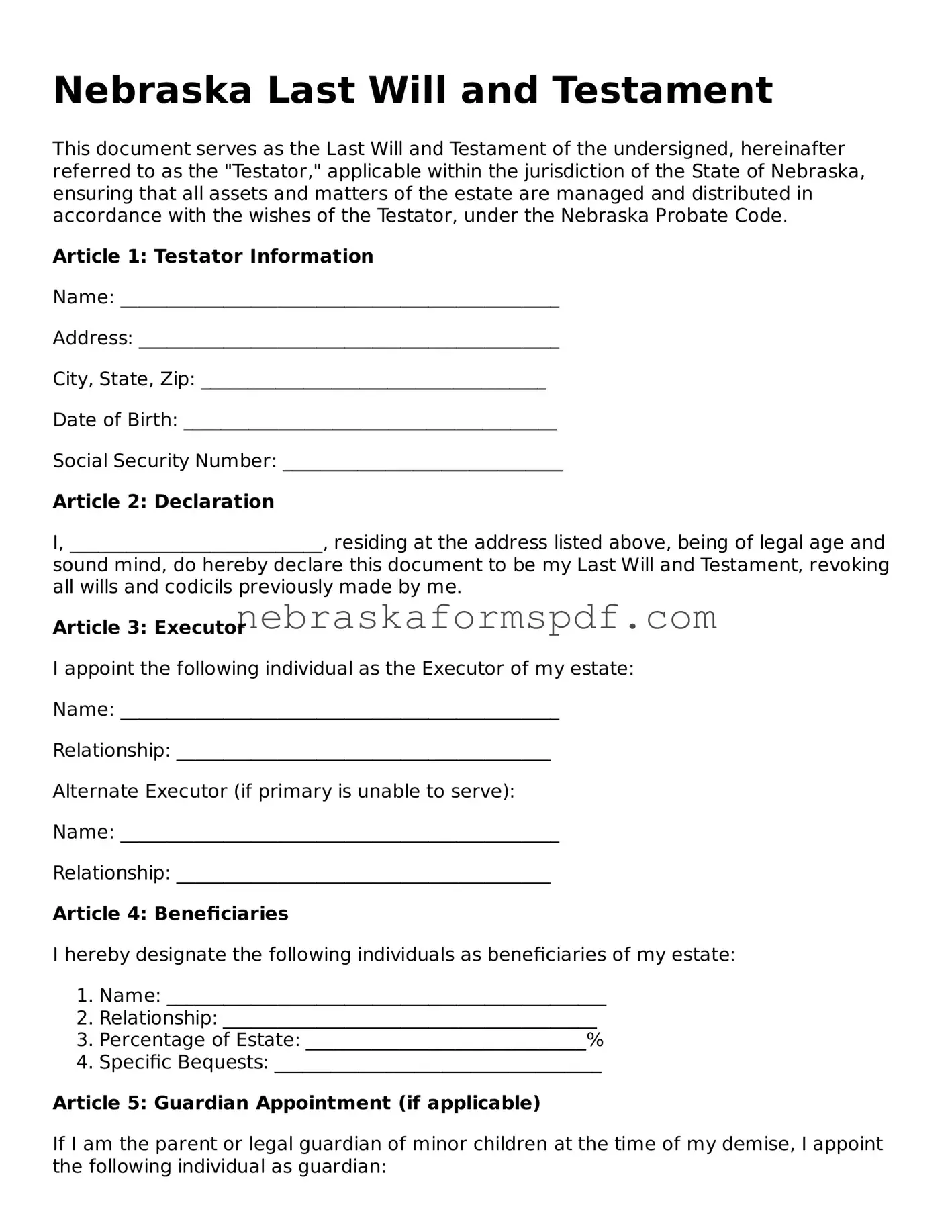Nebraska Last Will and Testament
This document serves as the Last Will and Testament of the undersigned, hereinafter referred to as the "Testator," applicable within the jurisdiction of the State of Nebraska, ensuring that all assets and matters of the estate are managed and distributed in accordance with the wishes of the Testator, under the Nebraska Probate Code.
Article 1: Testator Information
Name: _______________________________________________
Address: _____________________________________________
City, State, Zip: _____________________________________
Date of Birth: ________________________________________
Social Security Number: ______________________________
Article 2: Declaration
I, ___________________________, residing at the address listed above, being of legal age and sound mind, do hereby declare this document to be my Last Will and Testament, revoking all wills and codicils previously made by me.
Article 3: Executor
I appoint the following individual as the Executor of my estate:
Name: _______________________________________________
Relationship: ________________________________________
Alternate Executor (if primary is unable to serve):
Name: _______________________________________________
Relationship: ________________________________________
Article 4: Beneficiaries
I hereby designate the following individuals as beneficiaries of my estate:
- Name: _______________________________________________
- Relationship: ________________________________________
- Percentage of Estate: ______________________________%
- Specific Bequests: ___________________________________
Article 5: Guardian Appointment (if applicable)
If I am the parent or legal guardian of minor children at the time of my demise, I appoint the following individual as guardian:
Name: _______________________________________________
Relationship: ________________________________________
Article 6: Signatures
This Last Will and Testament is executed on this date: _______________
Testator's Signature: _________________________________
Testator's Printed Name: ______________________________
Witnesses:
We, the undersigned, hereby certify that the above-named Testator, known to us, signed this Last Will and Testament in our presence as their voluntary act and deed, and that we, in turn, have signed as witnesses in the presence of the Testator and each other, this __________ day of _______________, 20__.
- Witness #1 Signature: _____________________________
- Printed Name: ____________________________________
- Address: __________________________________________
- Witness #2 Signature: _____________________________
- Printed Name: ____________________________________
- Address: __________________________________________

